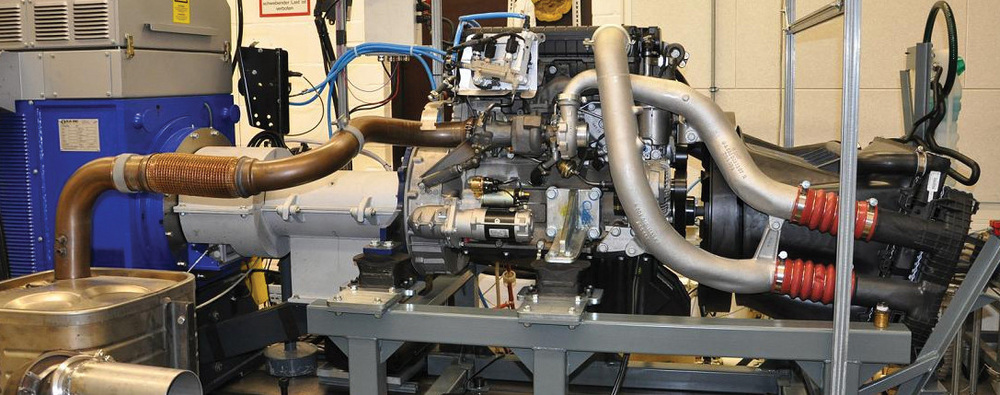Metathesis processing improves biodiesel oil dilution issues

October 28, 2013
BY Ron Kotrba
For several years now, concerns have existed with using higher-level biodiesel blends in new diesel vehicles that employ late post-injection for particulate filter regeneration, mainly because of engine oil dilution issues resulting from biodiesel’s higher boiling point. Unlike the petroleum portion of a blended fuel that seeps into the crankcase and then evaporates back out, biodiesel’s higher boiling temperature allows it to accumulate in the engine oil and stay there, causing concerns of premature engine wear if oil change intervals are not adjusted.
A project carried out at the Johann Heinrich von Thünen-Institut in cooperation with the Karlsruhe Institute of Technology, the Institute for Internal Combustion Engines of the Technical University of Braunschweig, the Steinbeis-Transfer Center for Biofuels and Environmental Measuring, Coburg, and the Technology Center Automotive of the University of Applied Sciences in Coburg, aimed to adjust the boiling behavior of biodiesel to that of petro diesel fuel.
The change of biodiesel molecules through metathesis, as a design tool, was extremely effective for the adaptation of the boiling behavior of a fuel. Metathesis is a special chemical reaction known from the oleochemistry industry, but it hasn’t really been applied to tailoring biofuels.
Starting from rapeseed oil methyl ester, composed largely of oleic, linoleic and linolenic acid, the catalyst-assisted metathesis reaction with 1-hexene as further reagent led to a variation of the chain lengths, which significantly influenced the boiling line of the produced fuel.
Advertisement
Advertisement
Investigations were done of the fuel’s properties, such as mixing with other fuels and engine oil, as well as the material compatibility with selected polymers.
Subsequent engine tests comprised both analyses of the burning behavior of the fuels as well as determination of the exhaust gas emissions. In addition to the regulated emissions, ammonia, polycyclic aromatic hydrocarbons, carbonyls, mutagenicity and particle size distribution were also examined.
The investigation results indicate that metathesis fuels appear well-suited for use in modern diesel engines that use late-post injection.
Advertisement
Advertisement
Related Stories
Global digital shipbuilder Incat Crowther announced on June 11 the company has been commissioned by Los Angeles operator Catalina Express to design a new low-emission, renewable diesel-powered passenger ferry.
ATR and French SAF aggregator ATOBA Energy on June 19 signed a memorandum of understanding (MOU) to explore ways to facilitate and accelerate sustainable aviation fuel (SAF) adoption for ATR operators.
Argent Fuels, a leading provider of carbon-saving fuels in the UK, is accelerating its efforts to support a greener future. The expansion of its High Blend Biodiesel will supply to bus, coach, HGV fleets and rail in the south of the UK.
Sprague Operating Resources LLC on June 24 announced it has been selected by the New York City Department of Citywide Administrative Services to supply renewable diesel for its marine fleet, including the iconic Staten Island Ferry.
On June 17, the NYC Department of Citywide Administrative Services and the Department of Transportation announced the start of the Staten Island Ferry’s transition to renewable diesel, marked by the delivery of the first barge of fuel.
Upcoming Events










